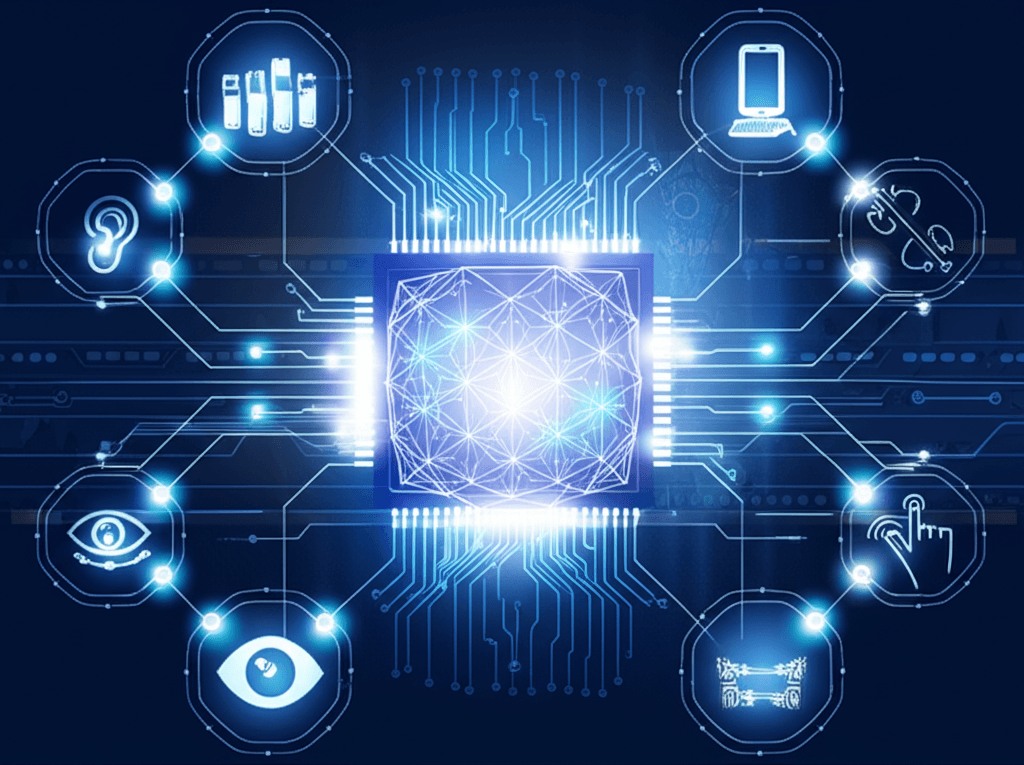Google Advances Agentic AI: From Information to Autonomous Action
Building on Waymo and enterprise AI, Google pivots to intelligent agents that proactively act for a new era of interaction.
June 12, 2025

Google is signaling a significant strategic shift towards agentic artificial intelligence, a move poised to redefine human-computer interaction and reshape numerous industries. Drawing on years of experience in AI control systems, notably from its autonomous vehicle subsidiary Waymo, and its expanding suite of enterprise AI applications, the technology giant is laying the groundwork for a future where AI agents act as proactive, reasoning, and autonomous partners. This concerted push, potentially a highlight of industry events like the AI Summit London 2025, underscores Google's ambition to move beyond an "AI-first" paradigm to an "agentic era," where AI not only provides information but also takes action on behalf of users.[1][2][3][4]
The journey towards sophisticated AI agents has deep roots in Google's long-term investments in complex autonomous systems. Waymo, its self-driving car project, stands as a prime example of AI mastering intricate control, perception, and decision-making in highly dynamic real-world environments.[5][6] The nuanced understanding of sensor fusion, predictive modeling, and safe operational autonomy developed through Waymo provides invaluable expertise for building more generalized AI agents.[5] This experience in creating systems that can perceive their surroundings, plan actionable steps, execute those plans, and learn over time is now being channeled into a broader range of AI initiatives, aiming to imbue them with similar levels of intelligence and independent operation.[7][8][9] The lessons learned from ensuring the safety and reliability of autonomous vehicles are also crucial as Google develops agents that will undertake tasks with real-world consequences.[10]
Simultaneously, Google has been cultivating agent-like capabilities within its enterprise offerings, transforming how businesses operate and innovate. Google Cloud's Vertex AI platform, particularly with the introduction of the Vertex AI Agent Builder, empowers developers to create sophisticated AI agents without necessarily needing deep coding expertise.[11][12][13][14] These tools facilitate the construction of "digital workers" capable of executing complex tasks across multiple systems, reasoning, planning, and remembering context to augment human capabilities rather than merely replacing them.[7] Early adopters of such enterprise AI agents are reportedly seeing significant returns, including reductions in processing times for key workflows and increases in employee productivity.[7] The focus is on creating agents that can break down system silos, handle routine tasks, and provide decision support, thereby freeing human workers to concentrate on more strategic and creative endeavors.[7][8] Google's introduction of the Agent Development Kit (ADK) and the Agent2Agent (A2A) open protocol further signals its intent to foster an ecosystem where diverse AI agents can communicate and collaborate seamlessly, regardless of their underlying framework or vendor.[12][15][16][17][18] This interoperability is seen as critical for the long-term success and scalability of AI agents in enterprise environments.[16][17]
Looking ahead, Google is heavily investing in next-generation agentic AI that promises to be more personal, proactive, and powerful.[9] Project Astra, unveiled as a vision for the future of AI assistants, exemplifies this ambition.[19][20][21][22][23] Astra is designed to be a universal AI agent that can process multimodal information (text, voice, video, real-world surroundings via a camera), understand context, remember past interactions, and take action to help with everyday tasks.[10][19][21][23] Initial demonstrations showcased capabilities like identifying objects, answering contextual questions about a user's environment, and even assisting with tasks like finding misplaced items or explaining code.[19][20][21] While still in development, Project Astra and similar initiatives like Project Mariner (focused on human-agent interaction within browsers) point towards AI that can multitask, plan, and execute complex sequences of actions, such as managing returns by searching emails, filling forms, and scheduling pickups.[10][20][9][24][25] The integration of more advanced reasoning capabilities, larger context windows from models like Gemini 2.0 and Gemini 2.5 Pro, and tools for developers like the Agent Development Kit are all geared towards making these sophisticated AI agents a reality.[10][26][9][27][18] Google is also embedding these agentic capabilities directly into its core products, including Search, Chrome, Workspace (with features like "AI Teammate"), and Android, aiming to make interactions more intuitive and task-oriented.[20][22][28][9][3][29][25] For instance, AI agents in Google Search are envisioned to go beyond providing overviews to actively helping users plan and execute tasks.[20][29]
This determined stride into agentic AI by Google carries profound implications for the wider technology landscape. It intensifies the competitive pressures on other major AI players to develop similarly sophisticated autonomous systems.[21][1] The emphasis on creating AI agents that can reason, plan, and act autonomously signals a move beyond current generative AI, which primarily creates content, to AI that actively participates in and completes tasks.[1] This shift could unlock significant productivity gains across various sectors, from software development, where AI agents can write, test, and deploy code, to customer service, marketing, and scientific research.[7][26][30][31][32][33][34] However, the rise of more autonomous AI also brings to the forefront critical considerations around safety, ethics, privacy, and the potential for job displacement, areas Google acknowledges it is actively researching and building safeguards for.[10][19][21] The ability of these agents to interact across multiple platforms and access vast amounts of personal and enterprise data necessitates robust security and governance frameworks.[12][16]
In conclusion, Google's focused advancement into agentic AI, built upon a foundation of expertise from specialized domains like autonomous driving and a growing enterprise AI footprint, represents a pivotal evolution in its AI strategy. By aiming to create AI systems that can proactively assist, reason, and execute tasks across diverse applications, Google is not just enhancing its existing product lines but is pushing the boundaries of what AI can achieve. The anticipated showcases and continued development throughout the coming year, potentially culminating in significant presence at events like the AI Summit London 2025, will be closely watched as indicators of how rapidly this agentic future will unfold and the transformative impact it will have on both individuals and industries.[7][30][2][35][36]
Sources
[1]
[2]
[9]
[10]
[11]
[12]
[13]
[14]
[15]
[16]
[17]
[18]
[19]
[20]
[21]
[23]
[24]
[25]
[26]
[27]
[28]
[29]
[30]
[31]
[34]
[35]